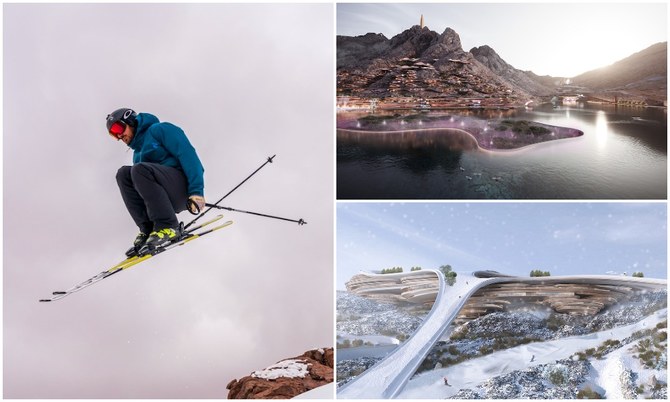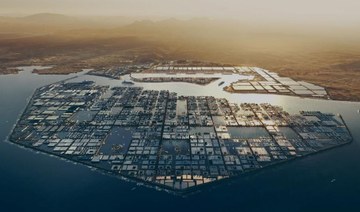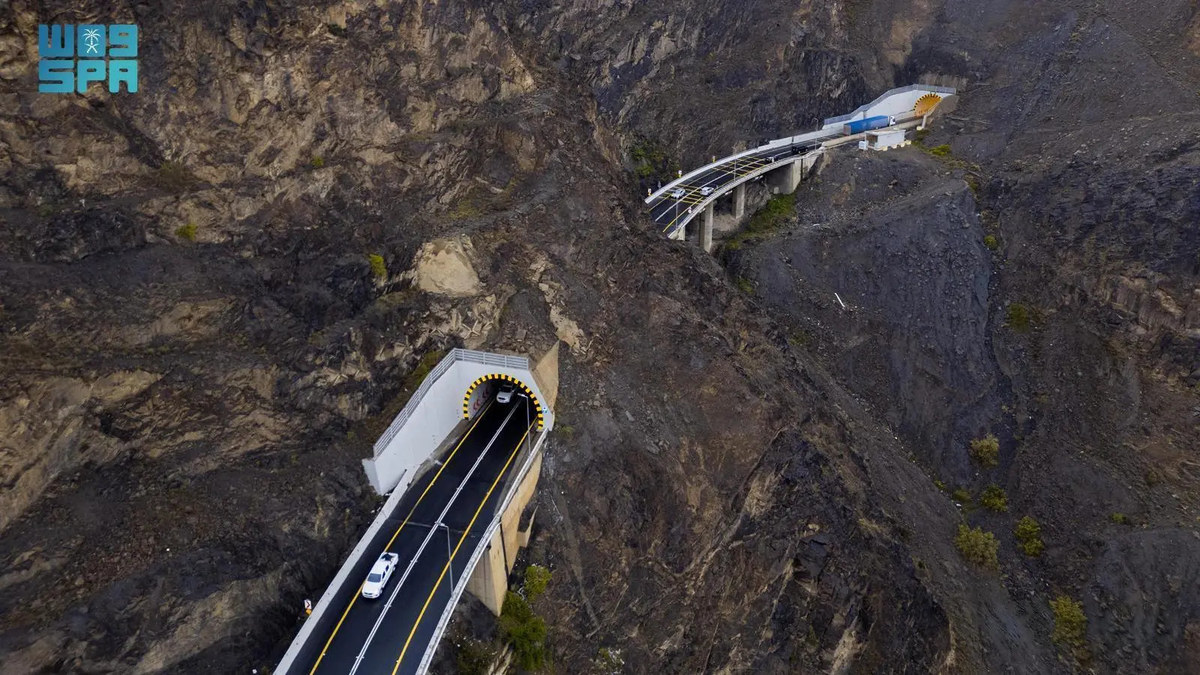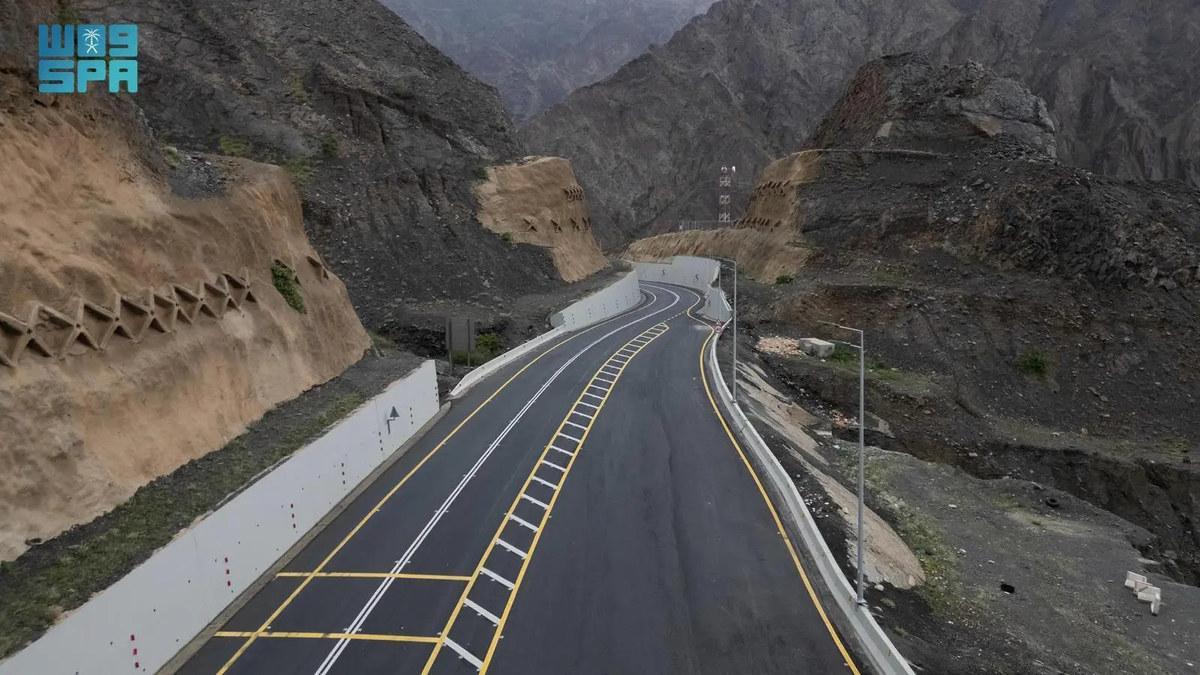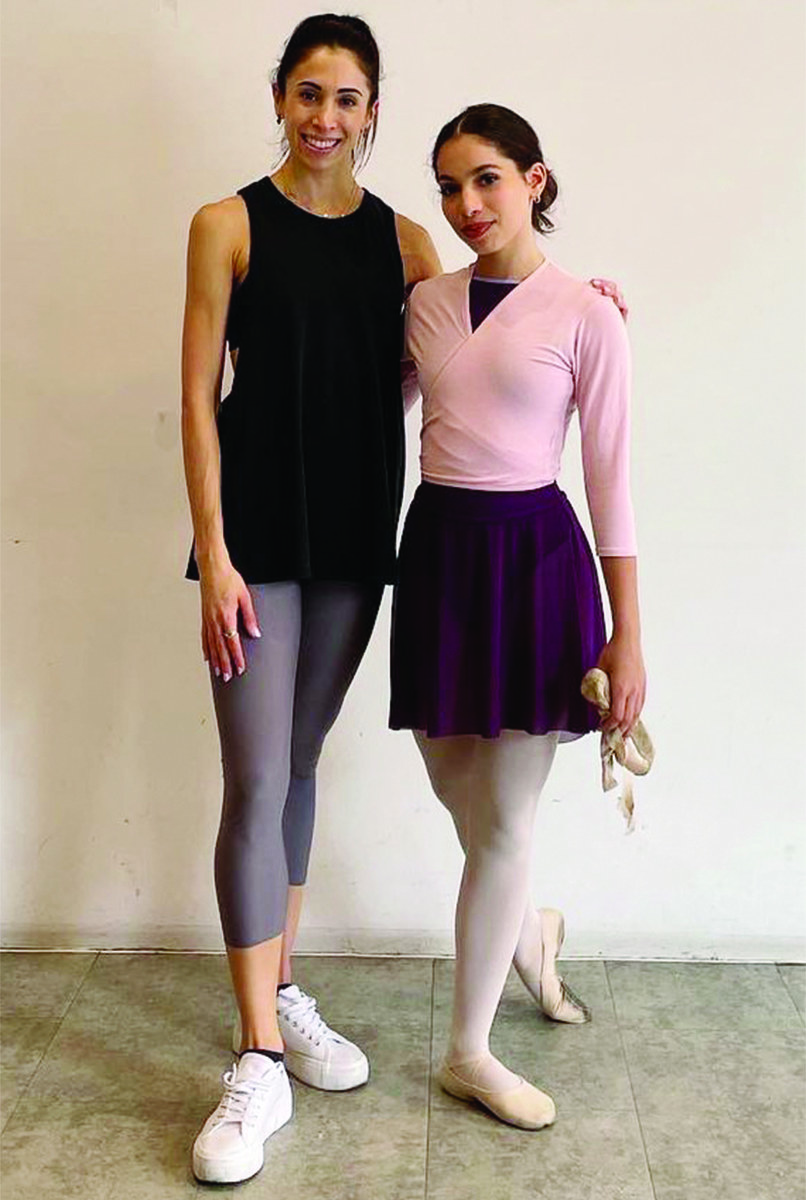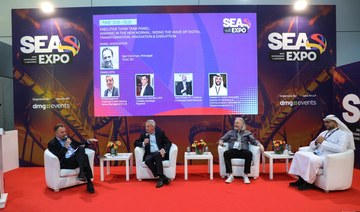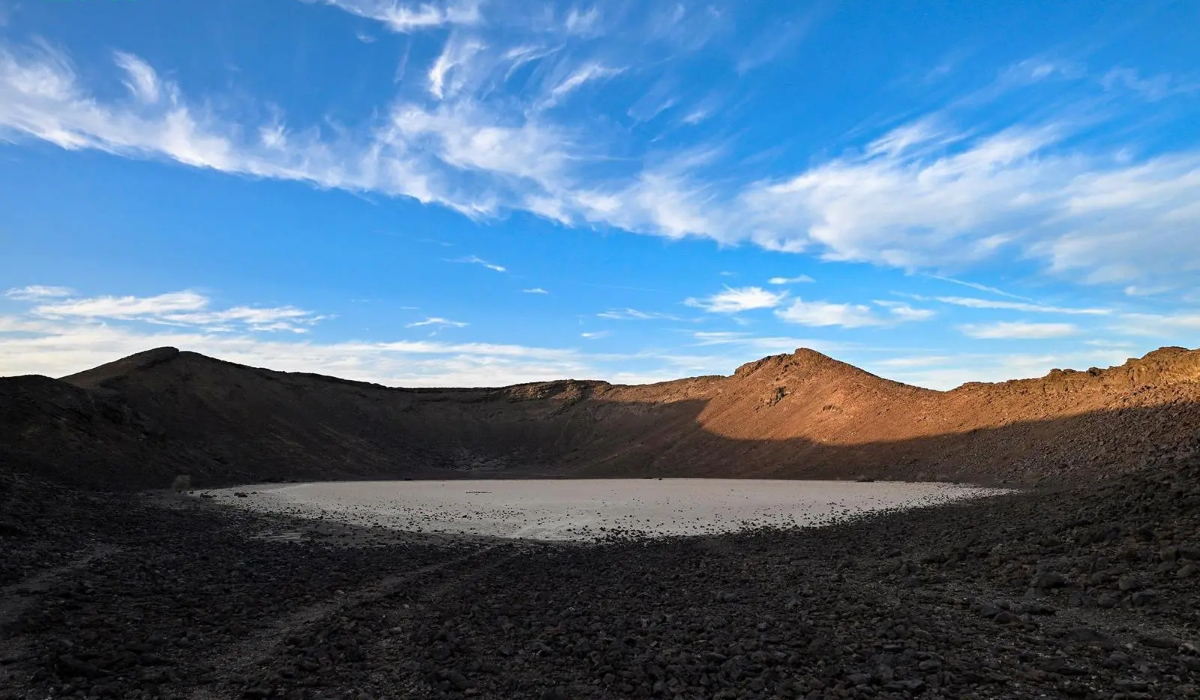JEDDAH: Nestled among the mountain peaks overlooking NEOM, the new smart city taking shape in northwest Saudi Arabia, the world’s first futuristic, sustainably built ski resort promises to transform the Kingdom into a major regional tourist destination.
Last month, Crown Prince Mohammed bin Salman unveiled plans for Trojena, the Gulf region’s first-ever outdoor ski resort, which, unlike the Alps of Europe, can be reached by almost 40 percent of the world’s population within four hours.
The site, which will feature sporting events, art exhibitions, concerts and cultural festivals, is expected to attract 700,000 visitors and 7,000 permanent residents by 2030. Planners say the project is due for completion by 2026.
Surrounded by the pristine ranges of the Sarawat Mountains, reaching 2,400 meters above sea level, Trojena is billed to become one of NEOM’s top tourism offerings, consisting of a ski village, ultra-luxury family and wellness resorts, the region’s largest freshwater lake, an interactive nature reserve, and a range of dining and retail options.
Trojena’s vision is to integrate nature and technology in order to cater to the interests and needs of modern travelers. “It will offer a seamless travel experience that can remove the traditional pain points of travel,” Philip Gullett, Trojena’s executive director, told Arab News.
“We are looking into delivering luggage via drones, using biometrics to fulfill security requirements, and allowing interested parties to explore the site first using the latest virtual reality.”
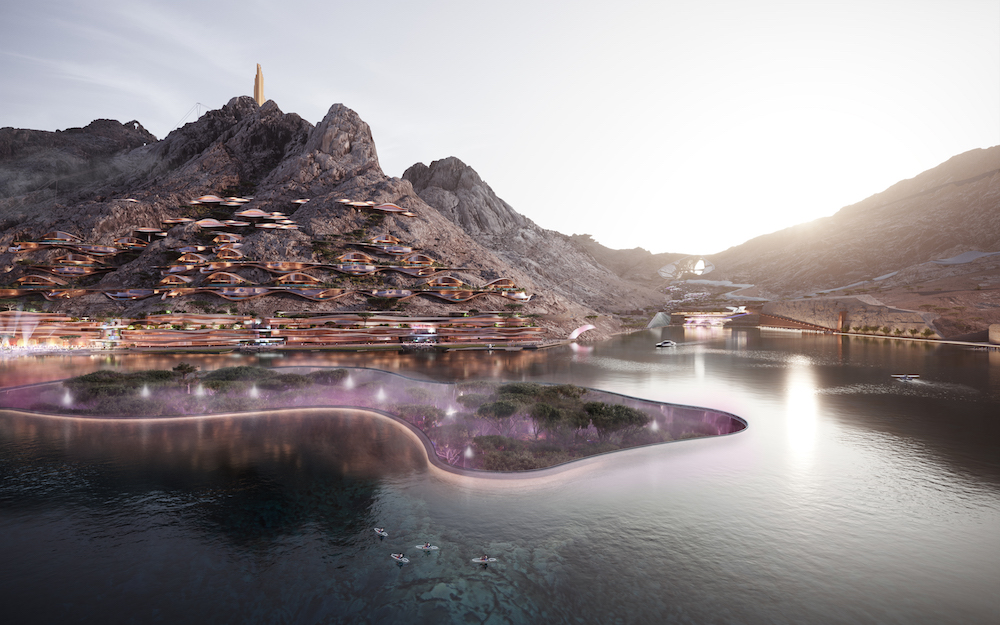
Trojena consists of six distinct districts, all centered around tailored experiences. (Supplied)
NEOM, the $500 billion project wholly owned by Saudi Arabia’s Public Investment Fund, is located on the Kingdom’s northwestern Red Sea coast. The area’s diverse terrain and dramatic topography makes it an ideal place for outdoor adventure tourism.
Visitors will soon enjoy a wide offering of activities, from scuba diving and skiing to hiking and climbing, all within the same day thanks to the high-speed mass transit network provided by The Line.
Trojena consists of six distinct districts, all centered around tailored experiences. It will host a wellness season from September to November with plans for a yoga retreat, art residency, entertainment residency and a focus on overall health.
Situated just 50 kilometers east of the Red Sea coastline, Trojena is on average 10 degrees Celsius cooler than the rest of the region, providing a temperate climate for outdoor sports throughout the year.
From December to March, it will host a raft of winter season events, including sports, a film festival, concerts and even a fashion week.
Then, between March and May, Trojena will offer an adventure season, hosting a triathlon, paragliding, mountain biking and more, followed by a lake season focused around water sports.
Following NEOM’s lead, Trojena will be powered entirely by sources of renewable energy and will make use of sustainable materials. “This includes the implementation of whole-life decarbonization targets,” said Gullet.
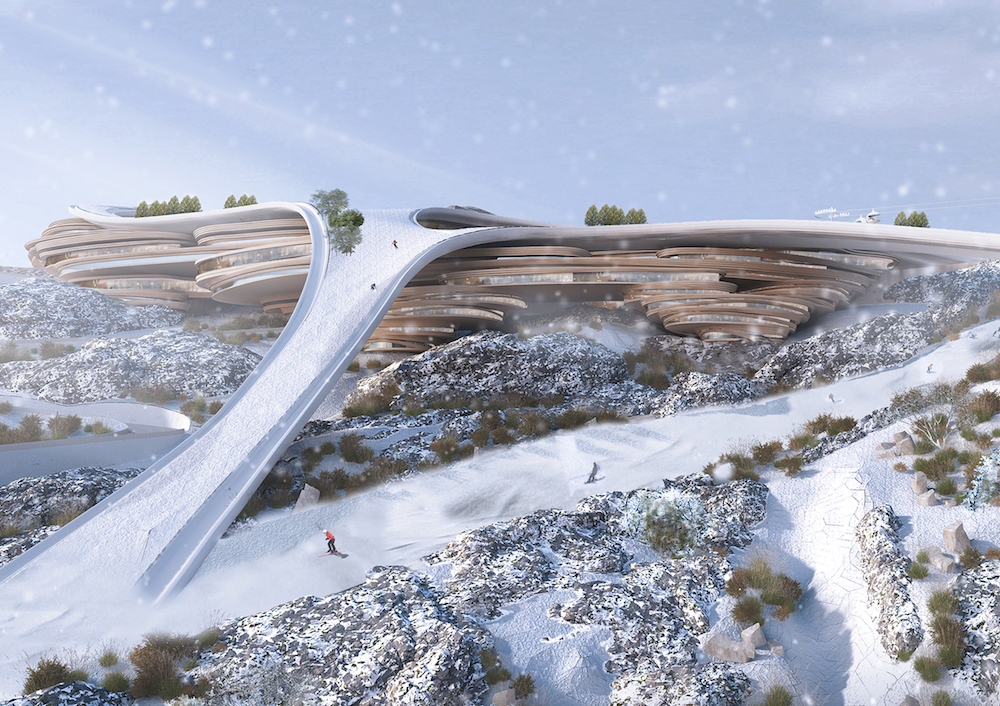
From December to March, it will host a raft of winter season events, including sports, a film festival, concerts and even a fashion week. (Supplied)
“These strategies will focus on heating and cooling systems, insulation and building materials, performance-based building energy codes that address operational and embodied carbon, and measures that enhance building resilience.
“One of the centerpieces of the energy grid will be a hydroelectric system that is incorporated within the lake system, and it will also be used as energy storage to help offset the energy required for the development.”
Planners say they have adopted a sustainable approach to the site’s construction, in adherence with NEOM’s strict environmental principles and to protect the cultural heritage of the region.
“NEOM is acutely aware of the need to protect the region and that is why sustainability is so central to this project at the outset,” said Gullet.
“The master plan was developed with specific consideration of the natural terrain and the important and sensitive environments contained within.
“We will be placing assets and supporting infrastructure in a light and dispersed program to specifically protect the natural features of this region. This is an opportunity to demonstrate how human development and the environment can coexist as part of a more sustainable future.
“The preservation of NEOM’s authentic culture and heritage will be supported through the integration of technology. In terms of sites such as The Vault, the reliance on energy systems for heating and cooling will be reduced as it will be built partially underground.
“The naturally stable temperatures below ground will act to passively moderate the microclimate and will help to reduce any need to disrupt the natural landscape.”

The area’s diverse terrain and dramatic topography makes it an ideal place for outdoor adventure tourism. (Supplied)
Indeed, NEOM is actively promoting the use of recycled amenities, zero waste practices and the local sourcing of products to reduce the project’s carbon footprint.
Besides environmental sustainability, Saudi Arabia’s Vision 2030 reform agenda has made the public’s health and general well-being a top priority, setting out plans for more outdoor and green spaces, sports facilities and eateries offering nutritious fare.
In fact, one of NEOM’s key performance indicators is to ensure that 70 percent of its residents can practice sports for more than 150 minutes per week.
“The Relax Cluster of Trojena will offer a place to heal the body and mind, housing high-tech facilities and medical spas with tailored treatments, in addition to an outdoor wellness and personal enhancement center with innovative technologies,” said Gullet.
“We will offer world-class treatments for individual health and wellness provided by the leading doctors and therapists from around the world.”
One of the flagship attractions of Trojena will be its world-class observatory. Thanks to clear skies and a high altitude, the site will offer outstanding views of the night sky and will house a super telescope, integrated educational technologies, Observatory Pods and the NEOM Space Park.
“We want to make sure that these assets become world-renowned in the stargazing community,” said Gullet.
“This region has a long history with space and the development of the space industry is advancing. The next few years will be exciting.”




